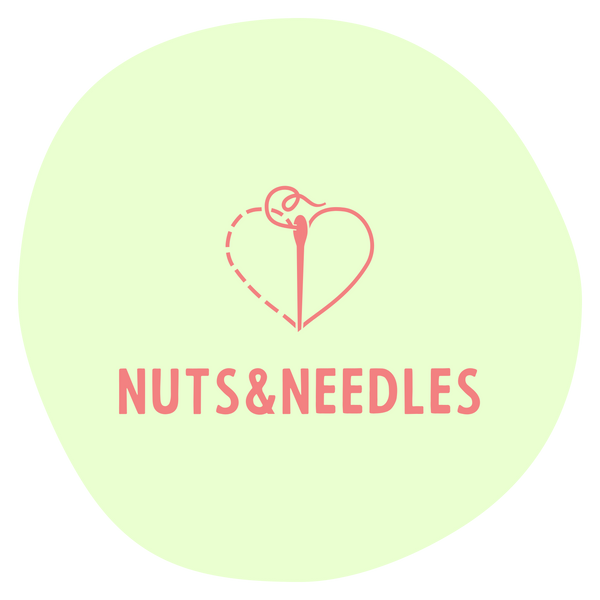written by Sarah Doleschal (nuts&needles)
Addiction is a disease of the brain that affects more than just the addict and can have devastating consequences for both the addict and their loved ones. Addictions are considered diseases because they cause changes in the brain that interfere with its normal function and can lead to a substance use disorder characterized by cravings, tolerance, withdrawal symptoms, and compulsive drug-seeking behavior.
There are many different types of addictive disorders, including those related to:
- Drugs and alcohol
- Food
- Sex
- Gambling
- Technology (internet, video games)
- Shopping
Addictions affect the whole family - not just the person who is addicted. It is important that everyone understands how addiction works so they can seek help for themselves or others if needed.
How does the disease develop?
Most of us have a hard time understanding how addiction can develop. The most common misconception is that people who become addicted to drugs or alcohol simply want to get high and have no control over their behavior.
However, research shows that this couldn't be further from the truth. The truth is that addiction is a serious brain disease that causes changes in the structure, chemistry and function of the brain. These changes can lead to compulsive drug use, despite the damage it causes.
The short answer is that it's complicated, and scientists are still trying to figure it out. However, we do know that there are some common factors involved in the development of addiction, including genetic predispositions, environmental factors, and brain chemistry.
Genetics
Genetics plays an important role in the formation of our brains and bodies. If a parent has a history of addiction, there is a higher risk of developing an addiction yourself. This doesn't mean that you will definitely develop an addiction - it just means that the likelihood is higher than someone without a family history of addiction.
Environment
Your environment can also have a big impact on whether or not you develop an addiction. For example, if you live around people who drink too much alcohol or use drugs frequently, your risk of developing an addiction increases significantly compared to someone who lives in a different environment where these things are not as common (or not at all). It may also depend on how much money or time your family has available for recreational activities. If it doesn't have a lot of money or time for recreational activities, then people may be more likely to smoke cigarettes or drink alcohol in their free time rather than go hiking or play sports.
What challenges do affected individuals face?
Addicts have many problems. They may not be able to go to work or have trouble finding a job. They may have trouble keeping a job, and if they do have a job, it's probably not one that pays them what they're worth.
They may have trouble with their finances because of their addiction or the consequences of their addiction. They may have trouble paying rent, making ends meet in general, or even buying groceries.
Addicts also face challenges in their relationships with loved ones: they may feel isolated from those who care about them; they may feel guilty because their addiction is affecting those around them; they may feel that they do not deserve love or affection because of their addiction, etc.
How can the disease be treated?
Addiction treatment is a complex process that may require a combination of behavioral therapy and medication. This combination can help you regain control of your life, overcome the trauma caused by addiction, and restore relationships with loved ones.
The first step in treating an addiction disorder is to determine whether or not you have an addiction disorder. This can be done through self-assessment or through an assessment by a professional. Alcoholics Anonymous meetings are also helpful in this process because they provide a safe space where you can talk about your problems with others who are experiencing similar issues.
DOs in dealing with affected persons
Many people who have an addicted loved one in their lives wonder, "How can I help them?" The answer is not always easy to find. The first step is to understand that your loved one doesn't want to be an addict and that he or she is doing everything in his or her power to solve the problem on his or her own. However, addiction is a disease, and it doesn't go away on its own. For many people, it takes years of trying different approaches before they finally have success in recovery.
It's important to remember that there is no one right way to help someone with an addiction. What works for one person may not necessarily work for another. If you try something and it doesn't work, don't give up! Try something else until you find something that helps both you and your loved one.
DON'Ts in dealing with affected persons
It can be heartbreaking to watch a loved one struggle with addiction. You probably try to do everything you can to help him get clean, but it's not always clear what that means. If you find yourself in this situation, there are some things you should avoid when dealing with an addicted person:
Don't let guilt manipulate you. Your loved one may try to make you feel guilty by saying things like "I'm a burden to everyone" or "You'd be better off without me." Don't fall into this trap! There are many other ways you can help your loved one stay sober, such as taking him to rehab and providing emotional support during his recovery.
Don't give up hope. Addictions often make people feel hopeless - like there's nothing they can do to get out of the vicious cycle they're trapped in. But that's not true! You can help your loved one find treatment and support groups that will help them stay sober long-term and live a healthier life.





